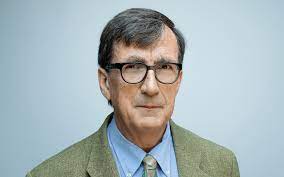Latour, Bruno

Bio: (1947-2022) French sociologist. Bruno Latour received his doctorate from the Francois Rabelais University in Tours in 1975. He has lectured at the École des Mines de Paris and at the Institut d'études politiques de Paris. Latour first became famous for his book Laboratory Life (1979), in which he presents the results of research conducted in the research neuro-endocrinology laboratory at the Salk Institute for Biological Studies in San Diego, USA. In this research, as well as in writing the book, Latour collaborated with Steve Woolgar. They developed an anthropological research model adapted to the study of the production of scientific and technological knowledge, and they studied various activities that scientists carried out in that laboratory. The basic theoretical approach of the research was the hypothesis that scientists actively produce the boundaries between science and society, using different resources in different situations. Using this approach, they found that scientists, in order to be successful in their work, establish connections with actors who possess power; in addition, scientists need to increase scientific credibility, that is, scientific capital. These connections and capital must continue to be constantly strengthened to maintain the strength of the bond within the "network".
It is the concept of the "network" that is essentially innovative and most important for the entire Latour's scientific work. Networks are not the same as social structures in other sociological theories. Networks are stable and broad macro phenomena, but they differ from structures in their process character. While structures represent stable relationships between elements, networks, according to Latour, represent a semiotic product of the daily actions of actors. Actors (or "actants" in Latour's terminology), on the other hand, are not just people, but an amalgam of textual, conceptual, social, and technical actors. Precisely because of the focus on actors and the networks they create, Latour called his theoretical approach "actor-network theory". Actor-network theory, which represents both a theoretical approach and a research method, studies how networks grow, overcome difficulties, and become stable over time; how networks organize their elements and how they direct the behavior of actors by creating stable roles; and how networks become functionally necessary for actors.
In his later work, Latour developed the term "technoscience" to describe a situation in which the various actants who make up scientific practices are unable to easily transfer that knowledge into applied research. Technoscience functions through the constant production of both science and society. Latour introduces another term - "translation", to explain the relationship between science and politics. Translation refers to the process of summarizing scientific knowledge into core and " inscriptions " (records) in the form of formulas or graphs. These records form part of the political method used for influencing the world.
Fields of research
Actors Democracy Everyday Life Innovation Institution and Organization Knowledge Role, Social TechnologyTheoretical approaches
Actor-network TheoryMain works
Laboratory Life: The Social Construction of Scientific Facts (1979);
Les Microbes: Guerre et paix, suivi de Irréductions (1984);
Pasteur. Bataille contre les microbes (1985);
Science in Action: How to Follow Scientists and Engineers Through Society (1987);
Nous n'avons jamais été modernes: Essai d'anthropologie symétrique (1991);
Aramis ou l'amour des techniques (1992);
Pandora's Hope: An Essay on the Reality of Science Studies (1999);
Politiques de la nature: Comment faire entrer les sciences en démocratie (1999);
Jubiler ou Les tourments de la parole religieuse (2002a);
La Fabrique du droit: Une ethnographie du Conseil d'État (2002b);
Making Things Public: Atmospheres of Democracy (2005);
Reassembling the Social: An introduction to Actor-Network Theory (2005);
On the Modern Cult of the Factish Gods (2010);
Enquêtes sur les modes d'existence: Une anthropologie des modernes (2012);
Face à Gaïa: Huit conférences sur le nouveau régime climatique (2015);
Où atterrir ? : Comment s'orienter en politique (2017);
Où suis-je ? : Leçons du confinement à l'usage des terrestres (2021);
Memo sur la nouvelle classe écologique (2022).
Works translated into English:
The Pasteurization of France (1988, in French 1985);
We Have Never Been Modern (1993, in French 1991);
Aramis, or the Love of Technology (1996, in French 1992);
Politics of Nature: How to Bring the Sciences into Democracy (2004, in French 1999);
The Making of Law: an Ethnography of the Conseil d'Etat (2010, in French 2002b);
Rejoicing: or the Torments of Religious Speech (2013, in French 2002a);
An Inquiry into Modes of Existence: An Anthropology of the Moderns (2013, in French 2012);
Facing Gaia: Eight Lectures on the New Climatic Regime (2017, in French 2015);
Down to Earth: Politics in the New Climatic Regime (2018, in French 2017);
After Lockdown: A Metamorphosis (2021, in French 2021).

